Colloquia for Spring 2020
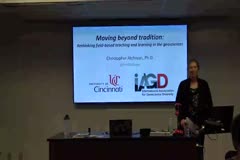
Moving beyond tradition: Rethinking field-based teaching and learning in the geosciences
March 05, 2020
Christopher Atchison
Hosted by Emily Fischer
Regardless of the discipline, field-based coursework places an implicit prerequisite on the physical ability needed to navigate the often rugged, ever-changing and unpredictable, natural environment. As a result, most field-focused disciplines marginalize those who do not fit the traditional model of a field practitioner. This marginalization is culturally derived from a social deficit model,…
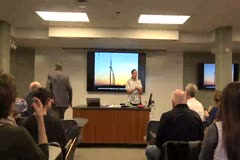
"Research Opportunities Gleaned from 12 Years in the Wind Energy Industry
February 27, 2020
Gregory Poulos
Hosted by Michael Bell
We explore the atmospheric science challenges afforded by the development of wind energy. Micro- to climate-spatiotemporal scales are discussed. Although wind turbines generally operate in the surface layer and lower boundary layer over meso-beta to meso-gamma spatial scales, their impacts on the atmosphere are much larger, altering the lower atmosphere and, as the deployment of wind…
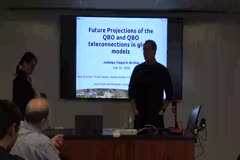
Future projections of the QBO and QBO teleconnections in global models
February 20, 2020
Yaga Richter
Hosted by Jim Hurrell
The quasi-biennial oscillation (QBO) of the zonal mean zonal wind is the primary mode of variability in the tropical lower stratosphere. The QBO is characterized by alternating easterly and westerly wind regimes propagating downward from ~ 5 to 100 hPa with an average period of 28 months. The QBO influences In this presentation I will describe what is needed to adequately represent…
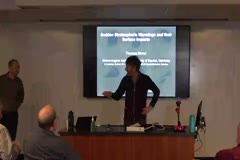
Sudden Stratospheric Warmings and their Surface Impacts
February 13, 2020
Thomas Birner
Hosted by David Thompson
Sudden stratospheric warmings (SSWs) are midwinter events in which the primary stratospheric circulation, which is characterised by a strong cyclonic vortex over the polar cap, abruptly breaks down, leading to an explosive warming of the polar stratosphere. SSWs modify the circulation throughout the stratospheric column. Furthermore, it is now well established that they tend to modify the…
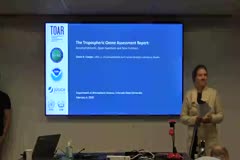
The Tropospheric Ozone Assessment Report (TOAR): Accomplishments, Open Questions and New Frontiers
February 06, 2020
Owen Cooper
Hosted by Emily Fische
Tropospheric ozone is a greenhouse gas and pollutant detrimental to human health and crop and ecosystem productivity. However, it is difficult to observe and quantify on the global scale, due to its acute spatial variability, resulting from its variable lifetime and its range of sources (injection from the stratosphere, or photochemical production from natural and anthropogenic precursor gases)…
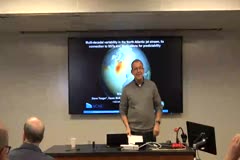
Multi-decadal variability in the North Atlantic jet stream, its connection to ocean variability and the implications for decadal prediction
January 30, 2020
Isla Simpson (NCAR)
Hosted by Jim Hurrell
The characteristics of the North Atlantic jet stream play a key role in the weather and climate of western Europe. While much of the year to year variability in the jet stream arises from internal atmospheric processes that are inherently unpredictable on timescales beyond a few days to weeks, any low frequency variability that can be considered forced by slowly varying boundary conditions…
